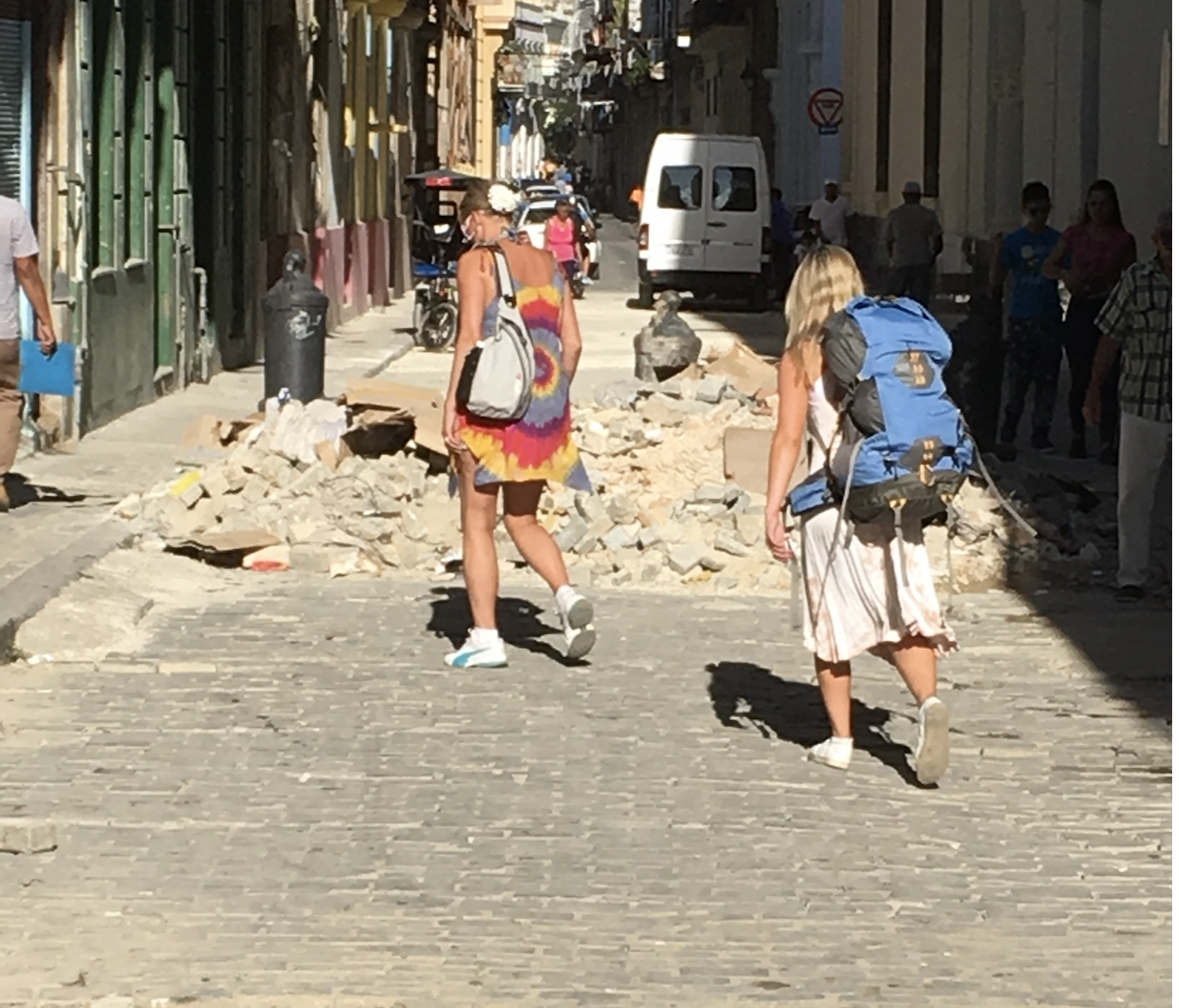Larry Catá Backer (Pennsylvania State University; Coalition for Peace & Ethics) is a founding member of the Coalition for Peace & Ethics and serves as the W. Richard and Mary Eshelman Faculty Scholar , Professor of Law and International Affairs at Penn State. He teaches and researches in the area of globalization, including public and private law systems and the emerging forms of data driven governance, and has lectured on these topics in Austria, Europe, Latin America, and Europe. He has been a visiting scholar at universities in Australia, China, and Europe. He has written extensively on the emergence of 21st century Marxist Leninist political and economic orders in China and Cuba. In addition to his articles, Professor has published Cuba’s Caribbean Marxism: Essays on Ideology, Government, Society, and Economy in the Post Fidel Castro Era (Little Sir Press, 2018). His latest article is “Popular Participation in the Constitution of the Illiberal State—An Empirical Study of Popular Engagement and Constitutional Reform in Cuba and the Contours of Cuban Socialist Democracy 2.0,” Emory International Law Review 34(1):183-276 (2020) (with Flora Sapio, and James Korman).
Natalia Delgado is the Director, Cuba Capacity Building Project at Columbia University. Her varied legal and business career includes acting as a senior executive of a public company, a board member of one of the largest transit systems in the world, and partner of a nationally recognized law firm. Delgado has also engaged in the private practice of law for almost 25 years as a corporate and securities lawyer, including as a partner at Jenner & Block in Chicago. Delgado directs the Cuba Capacity Building Project at Columbia Law School, an initiative designed to foster the development of the legal institutions necessary for Cuba to transition to a more market-based economy. She has served on several boards, including the National Women’s Law Center, the Young Women’s Leadership Charter School of Chicago, and the Appleseed Foundation. Ms. Delgado, a Cuban-born American, graduated from the University of Michigan Law School and Oberlin College.
Mario Gonzalez-Corzo (Ph.D., Rutgers University) is Professor of Economics at the Department of Economics and Business at Lehman College of The City University of New York (CUNY), where he teaches graduate and undergraduate courses in Economics and Finance. Dr. González-Corzo is also a Faculty Fellow at the Cuba Project of the Bildner Center for Western Hemisphere Studies in The Graduate Center (CUNY) and Contributing Editor for the section on the Cuban economy of the Handbook of Latin American Studies (HLAS) published by the Library of Congress. His research and publications include financial sector employment trends and recent developments, entrepreneurship, with a focus on transition or post-socialist economies, and economic reforms in transition economies, with a particular emphasis on Cuban agriculture, banking, and the emerging non-State sector.
Yuri Gonzalez Hernandez. Mr. Gonzalez Hernandez is a Cuban Lawyer (University of Havana 2009) who is currently in residence at Penn State where he is working on his LLM degree. Before his arrival at Penn State, Mr. Gonzalez Hernandez worked as legal advisor for different Cubans companies, and the tax office of the Office of the Historian of the City of Havana. Since 2016 he has provided legal advice to self-employed workers, and also has participated in non-profit entrepreneur projects, aimed at the development of some communities of the City of Havana. He may be contacted at glezyuri15[AT]gmail.com
Vadim Grishin holds a PhD in Social Science and an MBA from Georgetown University’s McDonough School of Business. After the collapse of the USSR, Dr. Grishin was involved in the reform process in Russia, serving as Advisor to the Deputy Prime Minister of the Russian Federation from 1992-1993 and 2006-2009. Dr. Grishin has extensive experience working with the Bretton Woods Institutions. He was the Executive Director and Board Member of the World Bank Group from 2010-2014. He serves as Senior Advisor at the International Monetary Fund and has taght courses on the economics of transition at Georgetown University, and at the George Washington University.
Ricardo “Ric” Herrero is the Executive Director of the Cuba Study Group, a non-partisan, policy and advocacy organization comprised of Cuban-American business leaders and young professionals who share a vision of a free, sovereign, inclusive and prosperous Cuba that provides opportunities for all of its citizens to fulfill their aspirations. He is a strategic communications and public affairs professional with close to two decades of experience working at the intersection of international relations, politics, media, and philanthropy.
Luis R. Luis is an international economist in Massachusetts specializing in international finance. He has long been involved in international finance and investments as an officer of international organizations, commercial banks and investment management companies. Luis is a member of ASCE since its foundation. He holds a PhD degree in economics from the University of Notre Dame and has lectured at universities in the US, Europe and South America.
Frank Martínez studied Macro and Micro Economic Theory, Advanced Econometrics, International Trade and Finance, Analysis of Financial Statements, and other subjects at the University of Havana. There, he participated as ambassador student at the Model United Nations and, for three terms, at the International Summer School Conference in Economics and Management (ISSEM and ICEM) organized by the university Humboldt-Universität zu Berlin and the University of Havana. In 2015, he graduated with a Bachelor of Science in Economics (five-year program) after writing the thesis: “Modeling Client Satisfaction: The Tropicana Case”. He was awarded a 2015 Summer graduate fellowship at Georgetown University in Washington DC, when he first came to the United States. Currently, he is a Master’s degree candidate in International Relations at the University of Rhode Island and is serving a first term on ASCE’ Board during the period 2018-2020.
Joan Martínez Evora is a Lecturer in Business Law at the University of Miami Herbert Business School, where he teaches business law courses. Prior to joining the School, he was a Visiting Assistant Professor of Law at the University of Miami School of Law, where he taught Law of Obligations and International Family Law. He had previously been a member of the faculty at University of Havana, Cuba. He holds a Juris Doctor degree, magna cum laude, from the University of Miami, and a Licenciado en Derecho degree, with honors, from the University of Havana. In addition, he has practiced as a litigator and in the areas of business law and real estate. His current research interests include contracts and international laws affecting U.S. businesses. He has appeared multiple times as legal commentator in regional, national, and international press. He has received the Excellence in Teaching Award at Miami Herbert Business on several occasions.
Gary H. Maybarduk is a PhD economist, a retired For- eign Service Officer and a member of the ASCE Board. He has been writing on the Cuban economy since 1999 when he was Counselor for Economic and Political Affairs in the U.S. Interests Section in Havana.
Caroline McCulloch is an International Relations Ph.D. candidate at Florida International University (FIU) with academic and professional experience in the field of foreign affairs. She holds an M.A. in International Studies from FIU, an FIU LACC Graduate Certificate in Latin American and Caribbean Studies, and a B.A. from the University of Southern California (USC), where she graduated magna cum laude. Her studies focus on foreign policy and Latin America and the Caribbean with an emphasis on Cuba.
Armando Nova González received his doctorate in economics from the University of Havan where he serves as professor and Investigator Titular. He has served as part of the Equipo de Investigaciones Económicas Agrícolas of the Economics faculty of the University of Havana, helped organize the Equipo Técnico Agrícola , and was heaviliy involved in Citrus industry efforts. He has given courses, lectures and seminars all over the world, and in the U.S. including at Florida State University, Stanford and the University of California Berkeley. He is the author of three books: (1) “Aspectos Económicos de los cítricos en Cuba” Editorial Científico Técnica 1988 La Habana, (2) “La agricultura en Cuba: evolución y trayectoria 1959-2005” Editorial Ciencias Sociales 2006 La Habana (winner of the University of Havana prize for best book on economics in 2006), and (3) “El modelo agrícola cubano y los Lineamientos de la Política Económica y Social (which won the University of Havana prize for distinguished book publication in 2015). Hi new book, ” “El cooperativismo en la Economía cubana” is forthcoming. He is the co-author of more than twelve books and was a member of an author collective that recieved a national award from the Science Academy of Cuba for their book on Cuban economic restructuring, ” “Ensayo para una reestructuración necesaria.” His work has recieved a number of other awards over the years. He is art of a group which is currently seeking to elaborate an agricultural policy for Cuba, the results of which are expected to be available in 2021. He is a member of the Board of Consultants for the journal TEMAS and sits on a number of agricultural boards .
Silvia Pedraza is Professor of Sociology and American Culture at the University of Michigan, Ann Arbor. Her research interests include the sociology of immigration, race, and ethnicity in America, as well as the sociology of Cuba’s revolution and exodus. Her research seeks to understand the causes and consequences of immigration as a historical process that forms and transforms nations. She is the author of several books, including Political Disaffection in Cuba’s Revolution and Exodus (Cambridge University Press, 2007), and has just finished a book on Revolutions in Cuba and Venezuela: One Hope, Two Realities, together with Carlos A. Romero, Universidad Central de Venezuela. The book will be published by the University of Florida Press. In the American Sociological Association (ASA), she was Chair of several Sections: the Latina/o Sociology, Race and Ethnic Minorities, and the International Migration Sections. She also served on the Council. In the Social Science History Association (SSHA), she was on the Executive Committee and is now on the Editorial Board of their journal. At present, she is President of the Association for the Study of the Cuban Economy and society (ASCE).
Lorenzo I. Perez (IMF retired). Lorenzo l. Perez retired from the International after 30 years of working on Latin America, Middle East, Central Asia and African countries. Since his retirement he has consulted for the World Bank Evaluation Group, the IMF Evaluation Office and the Centennial Group from Washington, DC. He has also taught international economics at George Washington University.
Jorge Pérez-López is an international economist who has worked in the Office of International Economic Affairs, Bureau of International Labor Affairs, U.S. Department of Labor. He has also worked as director of monitoring at the Fair Labor Association. He is a long-term student of the Cuban economy, particularly of the system of national accounts, international trade and investment, the sugar industry and labor issues. His book-length publications on Cuba include Paths for Cuba: Reforming Communism in Comparative Perspective, University of Pittsburgh Press, 2019 (co-edited with Scott Morgenstern and Jerome Branche); Cuba Under Raúl Castro: Assessing the Reforms, Lynne Rienner Publishers, 2013 (co-authored with Carmelo Mesa-Lago); Corruption in Cuba: Castro and Beyond, University of Texas Press, 2006 (co-authored with Sergio Díaz-Briquets); Reinventing the Cuban Sugar Agroindustry, Lexington Books, 2005 (co-edited with José Alvarez); and The Economics of Cuban Sugar, University of Pittsburgh Press, 1991. He is a former President of the Association for the Study of the Cuban Economy (ASCE) and Editor of Cuba in Transition, the papers and proceedings of the annual meetings of ASCE.
Jorge Sanguinetty is the founded DevTech Systems, Inc. (DevTech) in 1984.He is Chairman of the Board of Directors and Advisor to the President of DevTech. Dr. Sanguinetty holds a Ph.D. in Economics from City University of New York, with concentration in Econometrics, Mathematical Economics and Economic Development. He is an expert in development, transition, and human capital strategies. He has published on education affairs in developing countries, especially in Latin America. He has worked on projects in more than 30 countries, including Costa Rica, the Dominican Republic, El Salvador, Guatemala, Honduras, Panama, Jordan, Russia, Guinea, and South Africa. Dr. Sanguinetty is also a frequent guest on radio and television programs and he writes weekly columns for Diario Las Americas and El Nuevo Herald in Miami. Many of his articles and essays on Cuba are available at www.cubafuturo.net. Dr. Sanguinetty is the author of Cuba: The Present and Future of the Cuban Economy and Society (Cuba: Realidad y Destino, Presente y Futuro de la Economía y la Sociedad Cubana), a book addressing the problems and possible solutions of a Cuban transition to a market economy and a democracy.
Carlos Seiglie is Professor and former Chair of the economics department at Rutgers-Newark. In addition, he is on the faculty of the Division of Global Affairs at Rutgers-Newark where he had served as Program Director. He is also an affiliated faculty member of the Center for Latin American Studies, Rutgers University-New Brunswick. He received his BA degree from Rutgers University and his Ph.D. in economics from the University of Chicago. His research interests include applied microeconomics, defense economics, and international economics. He has taught at Columbia University, the Helsinki School of Economics (now Aalto University School of Economics), the University of Alicante and the Université Pierre Mendes France – Grenoble II. In addition, he has been a consultant to both public and private institutions. Dr. Seiglie is the author of more than 50 refereed journal articles and book chapters and serves on the editorial boards of several journals. He is a past President of ASCE.
Paolo Spadoni is an Associate Professor in the Department of Social Sciences at Augusta University. He received his PhD from the Department of Political Science at the University of Florida. He also holds a Master in Latin American Studies from the Center for Latin American Studies at the University of Florida, and a Laurea in Political Science from the University of Urbino, Italy. Dr. Spadoni has carried out extensive research on the Cuban economy and the economic impact of U.S. sanctions against Cuba. He has published widely in scholarly and academic venues and is the author of Cuba’s Socialist Economy Today: Navigating Challenges and Change, Lynne Rienner, 2014, and of Failed Sanctions: Why the U.S. Embargo against Cuba Could Never Work, University Press of Florida, 2010.
Mrinalini Tankha is Assistant Professor of anthropology at Portland State University. She did her PhD in anthropology at Brandeis University and also has a BA in economics and MA in sociology from the University of Delhi, India. Prior to joining Portland State University, she was a postdoctoral scholar at the Institute for Money, Technology and Financial Inclusion at the University of California Irvine. Her research highlights how specific histories, politics, morality and value systems affect the uses and meanings of money in different societies. She has done fieldwork in Cuba for over 10 years looking ethnographically at its dual currency system and more recently on the uses of digital payment systems.
Rafael Velazquez Perez teaches international private law and international commercial at the Universities of Holguin (Cuba) and Vigo (Spain). He researches in the area of foreign direct investment. His book, Inversiones extranjeras sostenibles: Un análisis alternativo del Derecho internacional de inversiones enfocado sobre Cuba (Bosch editor, 2015) is well known.
RETURN TO CONFERENCE HOMEPAGE HERE.


